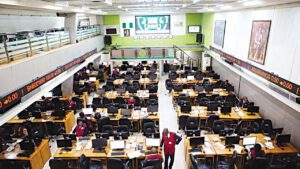Cadbury Nigeria’s profit drops to N241m in Q1 2021
By Kayode Tokede
Cadbury Nigeria Plc has reported profit decline of 62 per cent to N241 million in the first quarter.
That follows a huge drop of 73 per cent in pre-tax profit in 2020. Tax credit had enabled the company to cover up much of the drop in pre-tax profit last year but that is unavailable this time around.
The beverage and confectionaries manufacturing company faces an uncertain earnings outlook for the current financial year.
The strength to regain the earnings momentum failed to reappear in the company’s operating numbers at the end of the first quarter. Inability to grow sales revenue remains at the centre of the company’s challenge for the current year. This is extended by inability to contain cost of input. Failing sales against rising input cost underscores Cadbury’s falling profit this year.
The company posted a turnover of N8.9 billion in Q1 2021. This is an improvement of four per cent with a major drawback coming from a 69 percent drop in export sales over the period.
This is the second year that the company is losing revenue from export sales after a drop of 36 per cent in 2020. However domestic sales are on the recovery path this year from a drop of 10 per cent at the end of last year.
Cost of sales is growing considerably ahead of sales revenue – which is the challenge in the company’s earnings story since last year. At N7.4 billion, cost of sales rose by 19 per cent year-on-year compared to the four per cent increase in sales revenue.
Cadbury therefore devoted an increased proportion of sales revenue to meet cost of sales at 83 per cent compared to 73 percent in the same period last year.
With rising input cost, gross profit continues to thin down, dropping by 35 percent year-on-year to N1.5 billion at the end of the first quarter. Gross profit went down last year by 29 per cent, which accounted for the drop in profit.
Management is however taking vengeance for rising input expenses on operating cost. The effort is to counter the adverse impact of the uncontrollable cost of sales on the bottom line.
The company succeeded in cutting down selling and distribution expenses by 22 percent to N893 million over the review period. Also, it pruned administrative expenses by 19 per cent to N274 million at the end of the first quarter.
The cost reductions made were however quite insufficient to counter the impact of the cost of sales. Operating profit, therefore, dropped by over 63 per cent to close at N322 million for the first quarter.
The good news for Cadbury is its significantly deleveraged balance sheet that frees its income statement from finance expenses. The company closed the first quarter with a moderate finance income of N22 million.
A deleveraged balance sheet with the absence of finance expenses in the accounts is the saving grace that has made profit possible at all for Cadbury at this time. However an inter-company borrowing of some N2 billion in the first quarter has raised the company’s balance sheet debts from N3.4 billion at the end of 2020 to about N5 billion.
The company earned 13 kobo per share at the end of the first quarter operations, which is a drop from earnings per share of 34 kobo in the same period in 2020. It earned over 49 kobo per share at the end of last year and paid a cash dividend of 18 kobo per share to shareholders.




